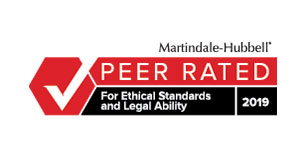You should seek medical attention immediately after a serious accident. Of course, with medical care comes a series of bills that you will need to cover.
There’s a common misconception that an injured person’s bills will be directly paid by the party who caused the accident, or even by an attorney. Although it is true that your attorney can track your medical bills throughout your case, you will be the one responsible for paying your medical bills — at least initially.
As your health insurance coverage is used to address your medical treatment, those expenses can be reimbursed by the at-fault driver’s auto insurance company, or uninsured/underinsured driver coverage you have through your own carrier. Under West Virginia law, once you are “made whole” through a settlement or verdict, your insurer can pursue repayment through the process of subrogation.
What is subrogation?
In many West Virginia personal injury actions, subrogation is used so that insurers can recover what they’ve paid to their policyholders from the people or businesses responsible for the injury. When a plaintiff accepts a settlement agreement or receives damages in a judgment, the insurance company can initiate a subrogation action to secure the funds they dispersed in connection with the relevant injury.
The most significant benefit of subrogation is that it simplifies the process so that you don’t have to forward any of your award to pay back your insurer. Instead, the insurer handles the process of obtaining the money they’re entitled to. The money you receive in your settlement or verdict goes straight to you without your insurer getting a cut.
For further advice on how to handle your medical expenses after an auto accident and to learn more about how subrogation might be used in your claim, contact an experienced West Virginia personal injury attorney with Prim Law Firm, PLLC. You may call the firm at 304-201-2425 or contact us online to schedule a free initial consultation.



